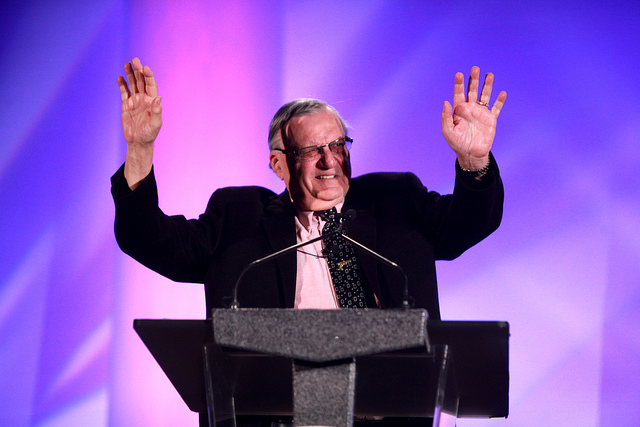Indian anarchist and revolutionary socialist Bhagat Singh was hanged in Lahore on 23 March 1931. He was twenty-four years old, and convicted of killing police deputy John Saunders out of revenge for his own killing of the influential nationalist Lala Lajpat Rai during a protest.
Despite the fact that he was killed at a young age, Bhagat Singh (often called shaheed or “martyr”) has been an enormous influence on South Asian politics. This is partially a result of his precociousness. Singh may have been executed at such a young age, but he had already been a member of numerous organizations, and his writings betray a subtlety and cosmopolitanism far beyond his years.
However, his continued popularity is also simply an appreciation of his venomous rage. Singh wasn’t just brilliant. His polemics are also filled with such memorable loathing for the British Empire that everyone from Communist Party of India to current Prime Minister Narendra Modi have sought to appropriate his legacy.
As a result, many of Singh’s actual positions and insights get ignored in a rush to portray him as everything from an orthodox Marxist-Leninist, to an early proponent of Hindutva. This is at the expense of his intellectual legacy, which is far more useful if we recognize that he was killed before he could sufficiently ‘mature’ as a political leader.
Given that, Singh’s works should be analyzed on an individual basis, with an eye towards how their positions may have eventually developed. This is particularly important with his famous essay, Why I Am An Atheist. The piece was written in the months before Singh’s execution, and is less significant for its firm atheism than how it politicizes that standpoint.
Why I Am An Atheist is a welcome antidote to the recent wave of atheism that bolsters neoconservative security policy, and specifically centers on the threat of Islam. This is apparent in ex-Muslims like Ayaan Hirsi Ali, as well as many advocates of New Atheism, through which mainstream intellectuals like Richard Dawkins, and the late Christopher Hitchens have become supporters of racism and war.
Singh’s atheism is quite different, in that it never loses track of resistance against political authority. It continues to have an appeal in South Asia and its Diasporas because of how it stresses that atheism is a necessary step towards political emancipation.

This difference is clearly the result of the conditions that Singh faced in contrast to first world thinkers like Dawkins and Hitchens. Rather than being convinced of the superiority of scientific reason in the comparatively affluent, industrial Western society, Singh was responding to the immiseration and violence of life under the British Raj. This is clearly described in the following passages:
“Open your eyes and see millions of people dying of hunger in slums and huts dirtier than the grim dungeons of prisons; just see the labourers patiently or say apathetically while the rich vampires suck their blood; bring to mind the wastage of human energy that will make a man with a little common sense shiver in horror. Just observe rich nations throwing their surplus produce into the sea instead of distributing it among the needy and deprived. There are palaces of kings built upon the foundations laid with human bones. Let them see all this and say “All is well in God’s Kingdom.” Why so? This is my question. You are silent.”
“No more logic chopping! I tell you that the British rule is not there because God willed it but for the reason that we lack the will and courage to oppose it. Not that they are keeping us under subjugation with the consent of God, but it is with the force of guns and rifles, bombs and bullets, police and militia, and above all because of our apathy that they are successfully committing the most deplorable sin, that is, the exploitation of one nation by another. Where is God? What is He doing? Is He getting a diseased pleasure out of it? A Nero! A Genghis Khan! Down with Him!”
Singh’s position on the existence of God is informed by the social and economic changes that the British Empire was imposing on South Asia at the time. Singh praises Charles Darwin later in the piece, but he doesn’t seem to reject the concept of God because of its alleged opposition to reason. Instead, he absorbs Darwinism into his political opposition to how the excesses of the Raj are portrayed as though they were a divinely-mandated inevitability. Why else would he cry out that the British are not “keeping us under subjugation with the consent of God”?

For Singh, the issue was one of understanding causality. Religion was leading Indians to believe that material inequality, and the oppressiveness of life under British rule, were expressions of divine will, rather than man-made. This is most clearly articulated in his criticisms of Hinduism, in which he writes:
“You, the Hindus, would say: Whosoever undergoes sufferings in this life, must have been a sinner in his previous birth. […] For the sake of argument we agree for a moment that a person committed some crime in his previous birth and God punished him by changing his shape into a cow, cat, tree, or any other animal. You may enumerate the number of these variations in Godly Punishment to be at least eighty-four lack. Tell me, has this tomfoolery, perpetrated in the name of punishment, any reformative effect on human man? […]
My dear friends, these theories have been coined by the privileged classes. They try to justify the power they have usurped and the riches they have robbed with the help of such theories. Perhaps it was the writer Upton Sinclair who wrote somewhere “only make a man firm believer in the immortality of soul, then rob him of all that he possesses. He will willingly help you in the process.” The dirty alliance between religious preachers and possessors of power brought the boon of prisons, gallows, knouts and above all such theories for the mankind.”
Singh wasn’t exactly unique for these insights, which are clearly influenced by thinkers like Bakunin and Marx. However, neither Westerner recommends atheism as an antidote to colonialism. This is clear in the sentences, “Society must fight against this belief in God as it fought against idol worship and other narrow conceptions of religion. In this way man will try to stand on his feet.” Why emphasize ‘standing on his feet’ at all if the point wasn’t to pursue independence?
It is unfortunate that Singh was hanged before he could develop many of the views in this piece even further. This would have been particularly welcome at the beginning of the piece, in which Singh seems to lash out at the replacement of God with science that now arguably underlines the New Atheism. He asks polemically, “how is it possible that a believer can turn into a non-believer because of his vanity,” and then answers:
“Only two things are possible: either a man deems himself to be in possession of Godly qualities, or he goes a step further and declares himself to be a god. In both these states of mind he cannot be an atheist in the true sense of the word. In the first case, it is not an outright rejection of God’s existence; in the other, he is affirming the existence of some kind of supernatural power responsible for the working of universe.”
This fragment is fascinating because of how it criticizes “deem[ing oneself] to be in possession of Godly qualities,” which is precisely the criticism of democracy and Western intellectualism that is expressed by staunchly religious 20th century reactionaries like the Islamist Abul A’la Maududi, and the Hindu M. S. Golwalkar. Maududi and Golwalkar both argued that Western political life made an ethical mistake by divorcing the divine from public life, because this led to an unnatural situation where, as Singh describes, one “declares [oneself] to be a god.” It appears that Singh could sense the potential dangers of his own position, which if separated from the atheistic standpoint of “No Gods, No Masters” could lead to entirely new forms of domination, without spiritual justification.
Instead, Singh viewed atheism as an integral part of anarchism and socialism. He wanted freedom in its broadest definitions, and saw atheism as a means to realize that objective in South Asia by depriving elite classes of their political power, while allowing for the colonized to stand upright. It is fairly likely that Singh, had he not been killed, would have expanded more on this important question to think of how the Marxist call for humanity to “appropriate its own essential powers” as surrendered to God, could be achieved without humanity literally becoming God. We can only guess, since the essay quickly drops the point after a discussion about the difference between pride and vanity.
Photographs courtesy of Steve Browne & John Verkleire, DraconianRain, and Manuel Menal. Published under a Creative Commons License.





